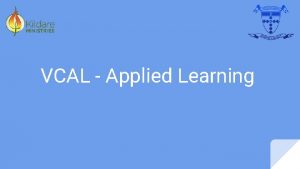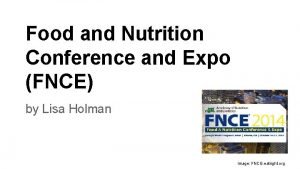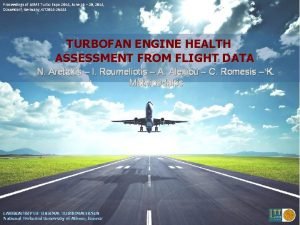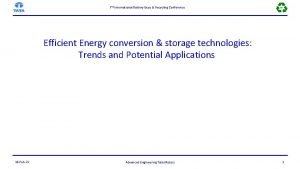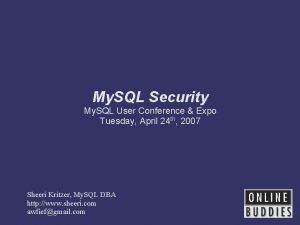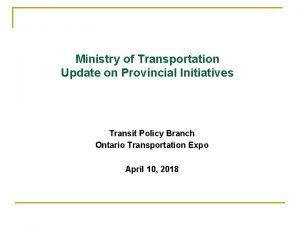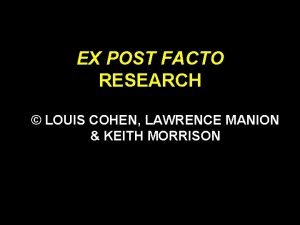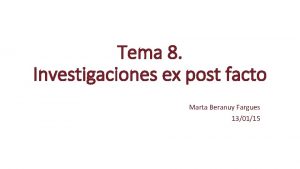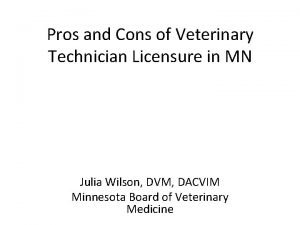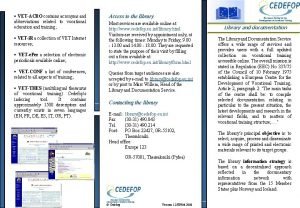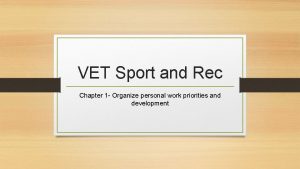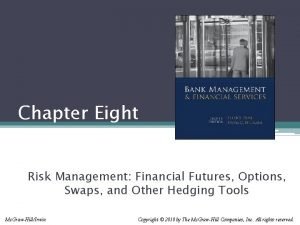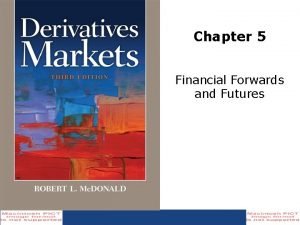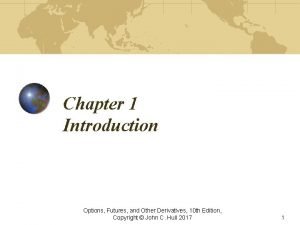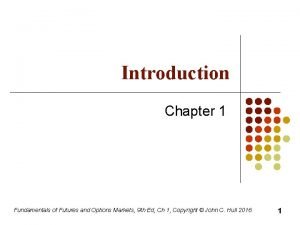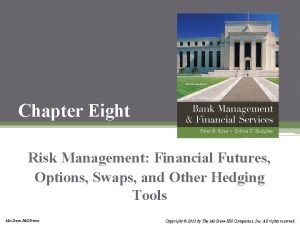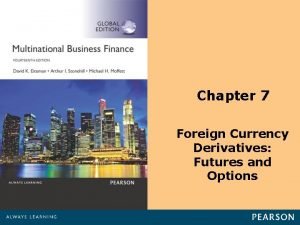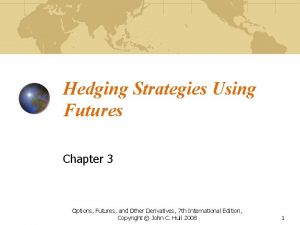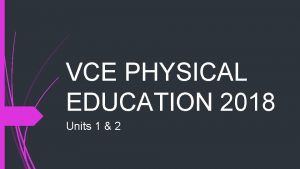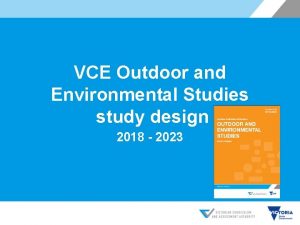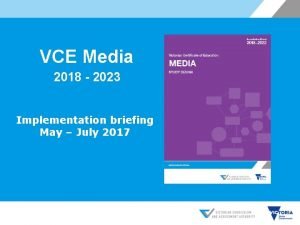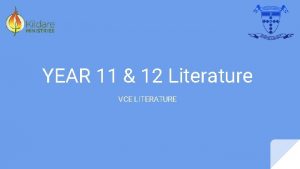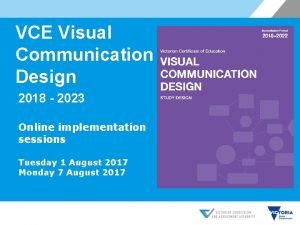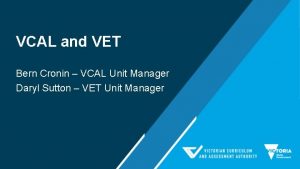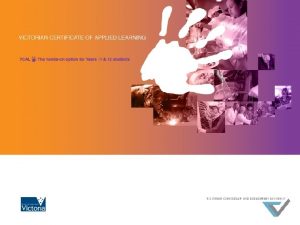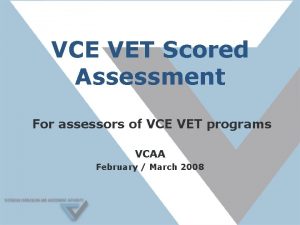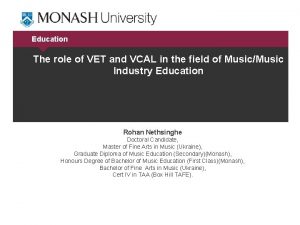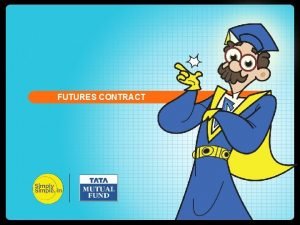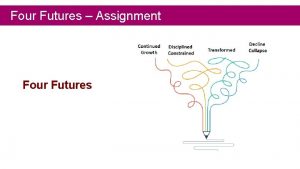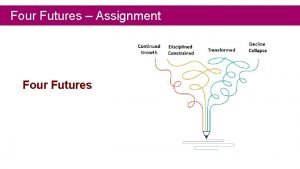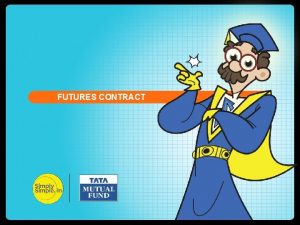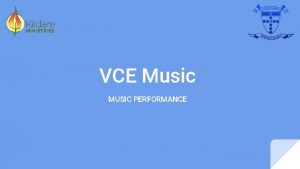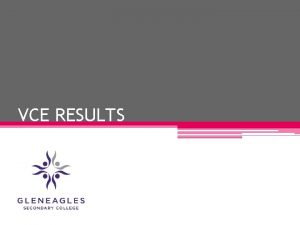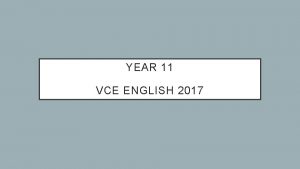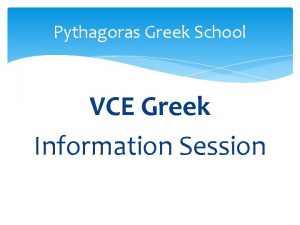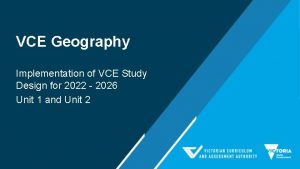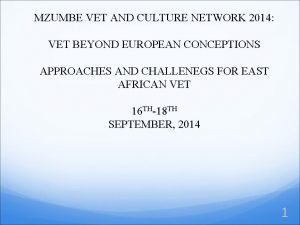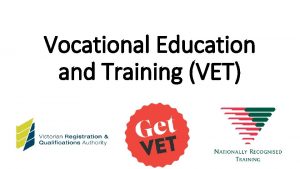Futures Expo VET VCAL and VCE Whats the




































- Slides: 36

Futures Expo VET, VCAL and VCE What's the difference? 2018

VCE & VCAL Overview VCE • Minimum 16 units “S” at Units 1 – 4 • 3 Units of English including Units 3&4 • 3 Other Unit 3 & 4 Studies • Units 1 & 2 – Study 4 Subjects, English & RE (4 Units per cycle – Unit 1) • Units 3 & 4 - Study 4 Subjects, English & RE (4 Units per cycle – Unit 2). Variation to RE if studying a Unit 3 & 4 RE sequence VCAL • Practical Hands on. • Attend VETis or TAFE Pathway one day per week. As diverse as Hairdressing, Equine Studies, Music Industry & Engineering. • Structured Work Placement linked to your VETis or TAFE studies • School Studies three days per week • Learn valuable numeracy, literacy, work related and personal development skills. • VCAL RE programme

VET Fits Both Vocational Education and Training in Schools (VETi. S) programs are designed to expand opportunities and pathways for senior secondary students, and improve post compulsory educational outcomes as well as address the employment needs of industry in Victoria

Keep Options Open I want to go to University after Yr 12 I’m not sure what I want to do after Yr 12 • Maximise your ATAR – Choose subjects you are likely to do well in – Choose an enhancement study so 6 subjects count in your ATAR • VCE subject • VCE VET subject – Check for prerequisite subjects • Maximise your Options – Choose subjects you are likely to do well in – Include a VET Course • so you can add to your ATAR • or enter a VCAL program

VCE

How do I decide? Talk to the presenters at the Futures Expo Talk to your parents Read the Curriculum Handbook Talk to your subject teachers Talk to your learning advisor Talk to Ms Dillon, Ms Cardomone, Mr O’Hara, and the VCE teachers • Go to the University and TAFE Open Days • • •

Choosing VCE Subjects • It is vital students research the VCE subject areas and choose subjects that best suit their strengths and skills. • Care needs to be taken when selecting subjects because a change in your subjects can be very difficult if not impossible to organise. • Students need to carry out plenty of investigation by talking to teachers and the Careers Advisor

Curriculum Handbook • This handbook will assist you to make decisions on which subjects to choose for 2019. It includes: – Lists of subjects on offer – Description of subjects – Compulsory subjects – And information on enhancing your VCE studies

Curriculum Handbook • Pages to pay particular attention to: – Pgs 122 - 128 will give you an overview of VCE programs and processes. – Pgs 134 - 138 discusses English requirements for VCE – Pgs 113 -121 describes the Vocational Education and Training options offered, including VET and VCAL, the format they will run in and the application processes.

VCE is usually completed over 2 years but may be undertaken over 3 years. There a wide variety of subjects available with information stands set up at the Expo in the Hall.

VCE – Year 11 Students undertake 5 subjects in Year 11 – Units 1 and 2 All students must complete English. It is advised to complete the whole year of a subject to maximise your knowledge for Year 12.

VCE – Year 12 Students undertake 5 subjects in Year 12 Unit 3 and 4. All students complete English and must have at least 4 other Unit 3 and 4 sequences. For students on a pathway that requires an ATAR, calculation is based on Unit 3&4 studies and block credit VET subjects only.

Standard Program • 22 units over 2 years – RE and English are compulsory. Students select all other subjects. Year 11 RE Unit 1 Year 12 RE Unit 2 English Unit 1 Unit 1 English Unit 2 Unit 2 English Unit 3 Unit 3 English Unit 4 Unit 4

Enhanced Program • 22 units over 2 years – RE and English are compulsory. Students select all other subjects. Year 11 Year 12 RE Unit 1 RE Unit 2 English Unit 1 Enhanced Unit 1 Unit 3 Unit 1 English Unit 2 Enhanced Unit 2 Unit 4 Unit 2 English Unit 3 Enhanced Unit 3 English Unit 4 Enhanced Unit 4 – The Enhanced Sequence in Year 12 could be substituted by a University Year 13 program (if eligible)

Satisfactory completion • To satisfactorily complete VCE students must complete 16 VCE units. • Conditions: – English – students must satisfactorily complete 3 units (including Units 3 and 4) – Plus a minimum of 3 other unit 3/4 sequences to a satisfactory level. at St Peter’s College we expect all students to complete English and 4 extra subjects.

ATAR • Australian Tertiary Admission Rank (formerly ENTER and TER) • Not a score, but a ranking system • shows a student’s achievement in relation to other students • Calculation: English study score next 3 best = ATAR 10% of 5 th (and possible 6 th)

Maximising your score • To maximise your chances of achieving a good ATAR score – Complete as many full sequences of subjects as possible – units 1 -4 – Pick subjects you are good at and enjoy. – Consider studying a unit 3/4 subject in year 11, if you think you can cope with the workload. You should consider this if you are planning higher study at tertiary level.

Enhancement Studies • A number of students are already completing studies in a unit 1 and 2 subject sequence at Year 10 • You may wish to carry on with an appropriate Unit 3 and 4 subject sequence in year 11 • We also have enhancement VET courses available – please see Mr O’Hara for more details.

English Options • English is the most important VCE subject as it always contributes towards your ATAR score. – English 3 & 4 and Literature 3 & 4 are the only subjects in the English package that contribute to the ATAR calculation and the eligibility for VCE award status A VCE Certificate is not possible without one of these sequences in your course. An ATAR ranking is not possible without the satisfactory completion of a 3 & 4 English sequence PLUS one other Unit of English.

Mathematics Options • As mathematics is often a prerequisite for university entrance you must choose carefully. – Maths Methods 1&2 > Math Methods 3&4 – Maths Methods 1&2 > Specialist Maths 3&4 – General Maths 1&2 > Further Maths 3&4

Additional RE Requirements • At St Peter’s College students must complete: – Two units of RE (spread over the 2 years) – A student attempting a full Unit 3 / 4 Religion in Society sequence will be exempted from the equivalent Unit 1 or 2 RE study in that year only.

Religious Education Options Year 11 Year 12 Compulsory (full year, 4 periods a cycle) • Unit 1 Religion and Society Options • Youth Ministry (Generally need to have done this in year 10) • Unit 3 and 4 Religion and Society • Madjitil Moorna Compulsory (full year, 4 periods a cycle) • Unit 2 Religion and Society Options (instead of the compulsory unit) • Unit 3 and 4 Religion and Society

Assessment • A combination of internal and external assessment. • Internal- SACs, SATs (School Assessed Coursework /Tasks) graded by teachers and reported to VCAA. There are no scores reported at Units 1 & 2. • External – Examinations (graded)

In The Hall – Futures Expo • Learning Area Coaches and subject teachers are available to discuss subject content and show examples of student work. • Various TAFE’s and Universities are available to talk to you about their courses and prerequisites.

Filling in the Online Form • To apply for an enhancement study (Unit 1/2 or 3/4) subject next year you will need to: – Indicate the units you wish to study on your online enrolment form. – Write a letter which outlines the reason why you wish to study the subject and how it relates to your career aspirations. This letter needs to be written by the student. – Address the letter to Ms Jorgensen (Deputy Principal Learning and Teaching)

Subject Meetings: Year 9 – 25 th & 26 th July Year 10 – 30 th & 31 st July Subject Selection online due 9: 00 am Monday 6 th August

VCAL & VET

VCAL • The Victorian Certificate of Applied Learning (VCAL) is a hands-on option for students in Years 11 and 12 (Year 10 Pre. CAL). The VCAL gives you practical workrelated experience, as well as literacy and numeracy skills and the opportunity to build personal skills that are important for life and work.

VCAL ü Provides opportunity for workforce training ü VCE VET Unit 3 & 4 sequences contribute to ATAR Score ü Competency based learning assessed over twelve months

VET in VCAL & VCE VET (St Peter’s) courses: Certificate II or III courses undertaken through the College. ü Certificate II in Engineering (VCE VET) ü Certificate III in Information, Digital Media & Technology (VCE VET) ü Certificate III in Sport & Recreation (VCE VET) ü Certificate III in Music Industry (VCE VET)

VET in VCAL & VCE VET approved courses: Certificate II or III courses undertaken through the College (Cont). ü Certificate II in Building & Construction (Partial Completion) ü Certificate II in Electrotechnology ü Any other Certificate II or III course through an external provider!

VCAL & VET ü All VCAL courses must have a VET subject component included in the course to be valid. ü Some VCE VET subjects are included in the usual school timetable eg. Sport & Recreation and Digital Media ü Other VET Subjects require “block release” to attend the VET course on or off campus.

VCAL & VET How does the VCAL Programme work? ü Attend school studies three days per week ü Attend work placement one day per week ü Attend VET (in school) or TAFE course one day per week.

VCAL & VET What subjects do I study at school? Subjects to “enhance” job opportunities for when you have completed VCAL. ü Numeracy or VCE Maths ü Literacy ü Work Related Skills ü Personal Development ü VCAL RE

Questions?

Further information • Please contact any of the following for more explanation of Senior Years information Senior Years Curriculum Leaders: Chris Windley (East) Louise Mansfield (West) VET / VCAL Co-ordinator Chris O’Hara Deputy Principal Teaching and Learning: Marlene Jorgensen Careers Advice: Robyn Cardemone (East) Melissa Dillon (West)
 Whats vcal
Whats vcal Vet to vet
Vet to vet Is vcal a waste of time
Is vcal a waste of time Food and nutrition expo
Food and nutrition expo Sec vt
Sec vt Craft distilling expo
Craft distilling expo Expo linking
Expo linking Science fair powerpoint template
Science fair powerpoint template Small business expo chicago
Small business expo chicago Asme turbo expo 2014
Asme turbo expo 2014 Expo docker
Expo docker Reinvent your career expo
Reinvent your career expo Expo 2021 doha
Expo 2021 doha Finsys infotech
Finsys infotech Expo
Expo Expo sql
Expo sql Franchise expo 2015
Franchise expo 2015 Fielders pro shop brookhaven ms
Fielders pro shop brookhaven ms Ontario transportation expo
Ontario transportation expo Disadvantages of ex post facto research
Disadvantages of ex post facto research Diseño prospectivo simple
Diseño prospectivo simple Expo elastix
Expo elastix Pros and cons of being a veterinary technician
Pros and cons of being a veterinary technician Vet acronyms and abbreviations
Vet acronyms and abbreviations Vet sport and recreation
Vet sport and recreation Options futures and risk management
Options futures and risk management Synthetic forward contract
Synthetic forward contract Options futures and other derivatives
Options futures and other derivatives Introduction to futures and options
Introduction to futures and options Traders in financial futures
Traders in financial futures Currency futures and options
Currency futures and options Hedging strategies using futures and options
Hedging strategies using futures and options Vce physical education units 1 and 2
Vce physical education units 1 and 2 Vce outdoor education study design
Vce outdoor education study design Media codes and conventions vce
Media codes and conventions vce Vce english text list 2017
Vce english text list 2017 Vcaa visual communication and design
Vcaa visual communication and design


